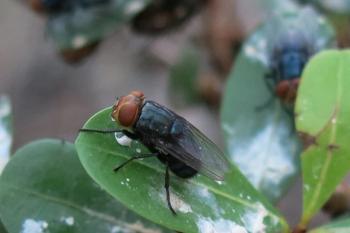
MRSA infections a growing concern in equine medicine
Methicillin-resistant Staphylococcus aureus (MRSA) poses a greater risk to equine veterinarians and to other people who work with horses than to the general population, a recent report suggests.
Methicillin-resistant Staphylococcus aureus (MRSA) poses a greater risk to equine veterinarians and to other people who work with horses than to the general population, a recent report suggests.
The statement comes in a recent clinical article by Dr. J. Scott Weese, of the Department of Clinical Studies, Ontario Veterinary College at the University of Guelph, Ontario, and published in the quarterly newsletter of the Gluck Equine Research Center in Lexington, Ky.
Under most conditions, S. aureus does not cause problems for people or animals, but does have a tendency to become resistant to antibiotics. The MRSA form resists all beta-lactam antibiotics (penicillin and cephalosporin families) and often many other antibiotics as well, making MRSA infections difficult to treat.
About 10 percent of healthy horses carry S. aureus in their noses, an occurrence called "colonization." A smaller number are colonized in the intestinal tract or on the skin.
MRSA also can colonize in horses without causing problems. Studies show an MRSA carriage rate of up to 5 percent in the general equine population, and up to 50 percent on some farms, Weese says.
But under some conditions, colonized horses can develop an MRSA infection, and can transmit MRSA to other horses and to people, leading to a wide range of infections.
Most common in the general equine population are skin and soft-tissue infections (including wound and surgical-site infections) and joint infections, the report says. In hospitalized horses, surgical-site infections predominate. Invasive-device (e.g., intravenous catheters) sites and bloodstream infections also can occur, along with infections at other sites, Weese says.
Still, MRSA infections often are treatable, he adds, citing a study in which more than 80 percent of horses with MRSA infections survived, although requiring longer hospital stays and in some cases additional surgeries.
There are some antibiotic treatment options, but early diagnosis of MRSA is critical, Weese says.
Typing of MRSA strains is key to understanding how and why infection rates are growing. In humans, MRSA is separated into community-associated and hospital-associated infections, but Weese points out that care should be taken in comparing that situation to horses because there are several differences.
One important difference is the types of MRSA in horses. Most MRSA reports in horses involved one family, or clone, of MRSA. It is a recognized human strain, but is uncommon in people.
Its predominance in horses suggests it is somehow better adapted to horses than other strains, Weese says.
One MRSA aspect for concern is the potential for transmission between humans and horses, in both directions.
"We know that vets, especially equine vets, are at higher risk for carrying MRSA. While carrying MRSA is not necessarily a problem for most people, it does increase the risk of development of an MRSA infection in certain circumstances. As well, colonized vets can be sources for infection for their patients and for other people," Weese tells DVM Newsmagazine.
Studies of equine veterinarians have shown colonization rates of 10 percent to 14 percent. The MRSA clone most common in horses has been the most common one in equine workers, giving further support to the possibility that horses can infect humans, Weese states in the article.
An outbreak of MRSA skin infections occurred in a teaching hospital in people working with a colonized foal, he says, showing the need to take precautions to lower human risk both in clinics and on farms.
Infection-control practices depend on the location and other conditions, but may include isolating infected or colonized horses, use of barriers (gloves and gowns) when handling such animals, improved general hygiene and sanitation among farm workers and veterinarians, screening of horses for colonization and limiting contact of different groups of horses, Weese says.
While there is no evidence that antibiotics can stem colonization, MRSA can be eradicated from farms through infection-control practices, if adequate time and energy are committed, he adds.
MRSA is likely to become an increasing concern in equine medicine, and all aspects of the equine industry should remain alert to it and take precautions, Weese says.
Newsletter
From exam room tips to practice management insights, get trusted veterinary news delivered straight to your inbox—subscribe to dvm360.






